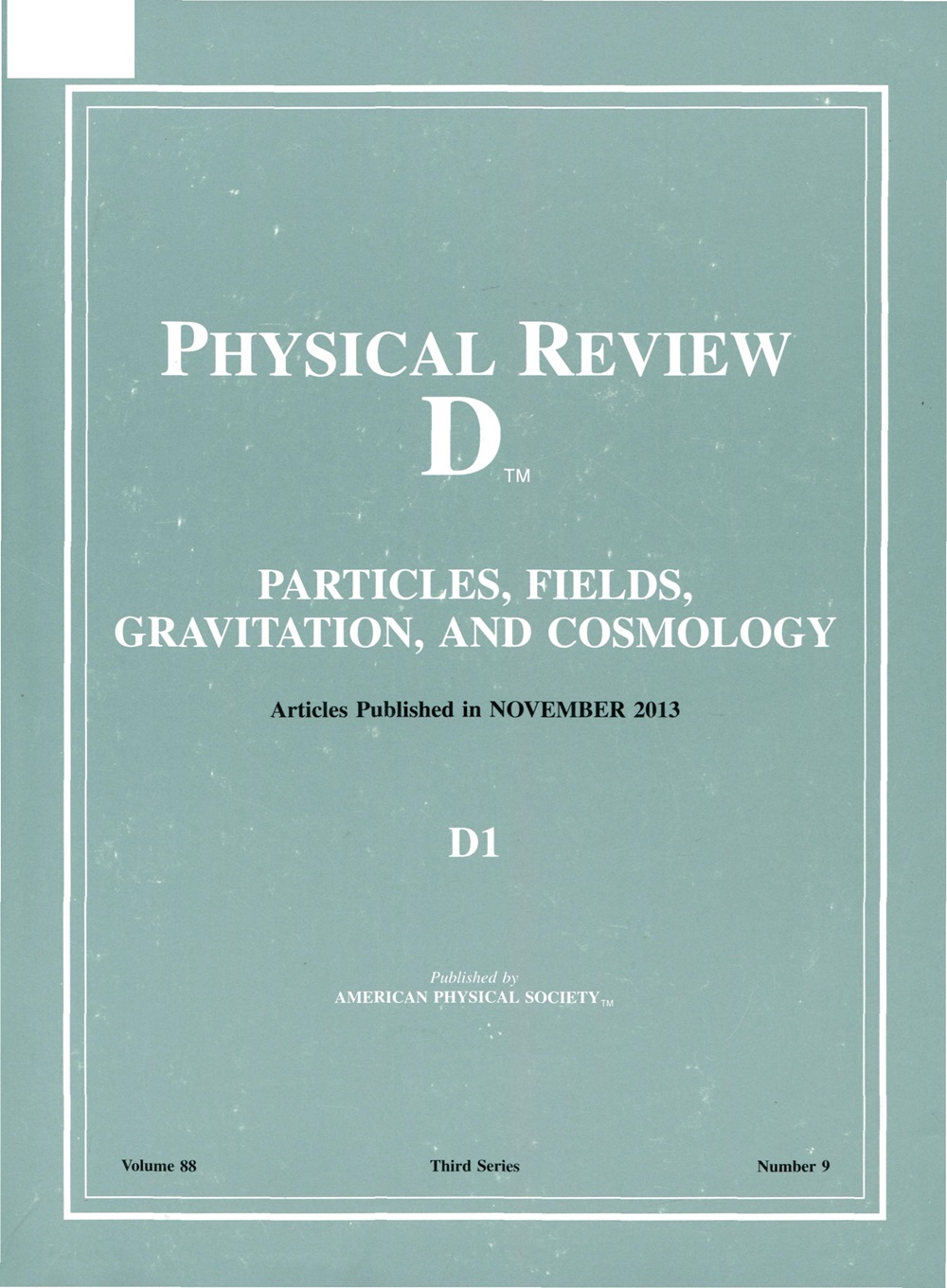Adjustment of Faddeev-Popov quantization to reducible gauge theories: Antisymmetric tensor fermion in AdSd space
IF 5.3
2区 物理与天体物理
Q1 Physics and Astronomy
引用次数: 0
Abstract
We develop the method adjusting the Faddeev-Popov factorization procedure for the quantization of generic reducible gauge theories with linearly dependent generators and apply it to the first stage reducible model of second rank antisymmetric fermion in d-dimensional anti–de Sitter (AdS) spacetime. The method consists of nested factorizations of the gauge group volume for the determination of the consistently defined delta function of reduced gauge conditions, group integration measure, and gauge-fixed contribution of ghosts. It is compared to the Batalin-Vilkovisky (BV) formalism of quantizing theories with linearly dependent generators and shown to be equivalent to it for first stage reducible theories. Nevertheless, the method under consideration, unlike the BV formalism, from the very beginning leads to the functional integral with fewer number of ghosts. Using this method, we quantized the variant of fermionic totally antisymmetric tensor-spinor theory in AdS space and derived its effective action in terms of the functional determinants of special Dirac-type operators. Limitations of the method are also discussed along with the prospects of its extension to higher reducibility stages and higher rank models of antisymmetric fermions.Faddeev-Popov量化对可约规范理论的调整:AdSd空间中的反对称张量费米子
本文提出了利用线性相关产生子对一般可约规范理论进行量化的Faddeev-Popov分解过程的调整方法,并将其应用于d维反德西特(AdS)时空中二阶反对称费米子的第一级可约模型。该方法由测量组体积的嵌套分解组成,用于确定一致定义的减少测量条件的δ函数、组积分测量和鬼的测量固定贡献。将其与具有线性相关生成元的量化理论的Batalin-Vilkovisky (BV)形式进行了比较,并证明了它与第一阶段可约理论是等价的。然而,与BV形式主义不同,所考虑的方法从一开始就导致具有较少幽灵数的函数积分。利用这种方法,我们量化了AdS空间中费米子完全反对称张量-旋量理论的变体,并推导了它在特殊狄拉克型算子的泛函行动式中的有效作用。讨论了该方法的局限性,并展望了其推广到反对称费米子的高可约阶和高阶模型的前景。
本文章由计算机程序翻译,如有差异,请以英文原文为准。
求助全文
约1分钟内获得全文
求助全文
来源期刊

Physical Review D
物理-天文与天体物理
CiteScore
9.20
自引率
36.00%
发文量
0
审稿时长
2 months
期刊介绍:
Physical Review D (PRD) is a leading journal in elementary particle physics, field theory, gravitation, and cosmology and is one of the top-cited journals in high-energy physics.
PRD covers experimental and theoretical results in all aspects of particle physics, field theory, gravitation and cosmology, including:
Particle physics experiments,
Electroweak interactions,
Strong interactions,
Lattice field theories, lattice QCD,
Beyond the standard model physics,
Phenomenological aspects of field theory, general methods,
Gravity, cosmology, cosmic rays,
Astrophysics and astroparticle physics,
General relativity,
Formal aspects of field theory, field theory in curved space,
String theory, quantum gravity, gauge/gravity duality.
 求助内容:
求助内容: 应助结果提醒方式:
应助结果提醒方式:


